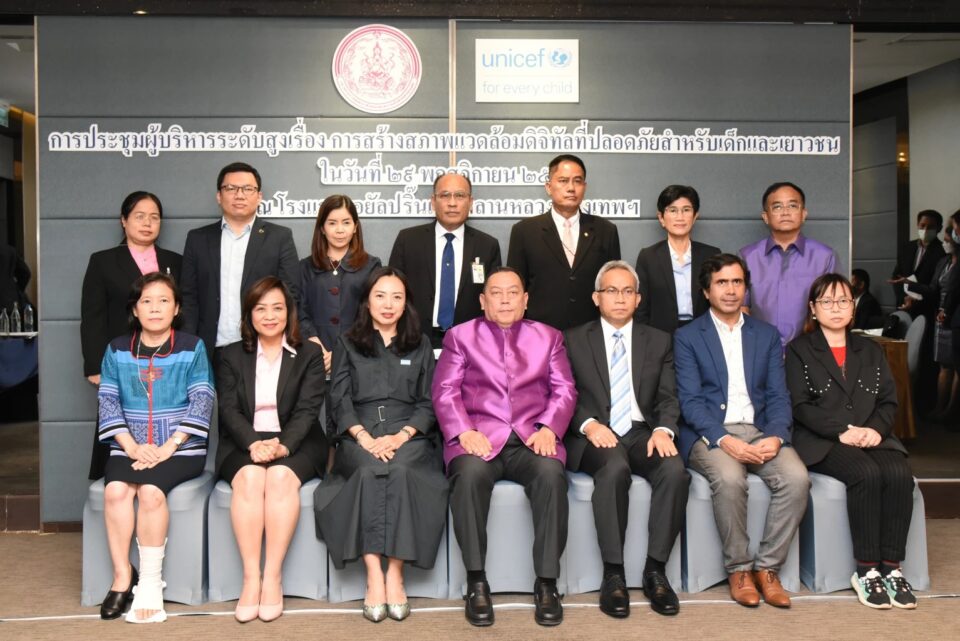Government officials will also work with ISPs to teach children and youths how to navigate the online world safely and confidently, officials said.
More than 40 senior officials and experts who focus on child-protection, health, education, law enforcement and information technology discussed and adopted a holistic and coordinated approach to address the alarming increase of online harm against children and young people, exacerbated during the Covid-19 pandemic.
Led by the Ministry of Social Development and Human Security with support from Unicef, the consultation resulted in the adoption of an innovative public-private partnership, the Thailand Safe Internet Coalition.
Thailand’s leading telecommunications companies, including AIS, DTAC and True, expressed their willingness and commitment to partnering with the government, private sector and civil society for safer digital spaces for children and young people.
Founded from a holistic, child rights approach, the Thailand Safe Internet Coalition aims to improve overall reporting of online abuse; enhance coordination among sectors, including the ICT private sector; improve service provision for victims; and build resilience among children, young people and parents to cope with online risks that children and young people face.
Its five pillars focus on safe digital experiences; child and youth engagement; accessible and responsive services; coordination and a unified message; and corporate sector engagement.
“While the internet provides unlimited opportunities for learning, communication and creativity for children and young people, it also exposes them to all kinds of risks and threats,” said Kyungsun Kim, Unicef Representative for Thailand, at the event. “The Covid-19 pandemic has only exacerbated these risks of online safety, as children are spending more and more time online. As the internet knows no bounds, no single organization can act alone in tackling online harm. That is why Unicef is supporting public-private partnerships to not only help build a safer digital environment but also ensure child rights in the online world.”
“Today marks an important step as the Thailand Safe Internet Coalition is formed,” said Juti Krairiksh, Minister of Social Development and Human Security. “It is a new dawn for public-private partnership, creating a safer internet for Thailand’s children. The only way forward is through collective commitment and coordinated action from everyone, and that needs to happen now. May this meeting be the beginning of our continued collaboration.”
According to the report Disrupting Harm in Thailand by Unicef, ECPAT and Interpol, a concerning 9 % of children aged 12-17 in Thailand, or about 400 thousand children, were victims of online sexual exploitation and abuse in 2021. These incidents include sharing sexual images of children and blackmailing or coercing children to engage in sexual activities through promises of money or gifts.
In Thailand, Unicef is helping to protect children and young people in the digital space through supporting law reform and working with the Ministry of Social Development and Human Security, Ministry of Digital Economy and Society, Ministry of Justice, Ministry of Education and law enforcement agencies to ensure that the child protection system covers online safety. Its Disrupting Harm in Thailand report features key evidence and steps to guide the government, law enforcement, social services, businesses, schools and communities in joining forces and acting now.





